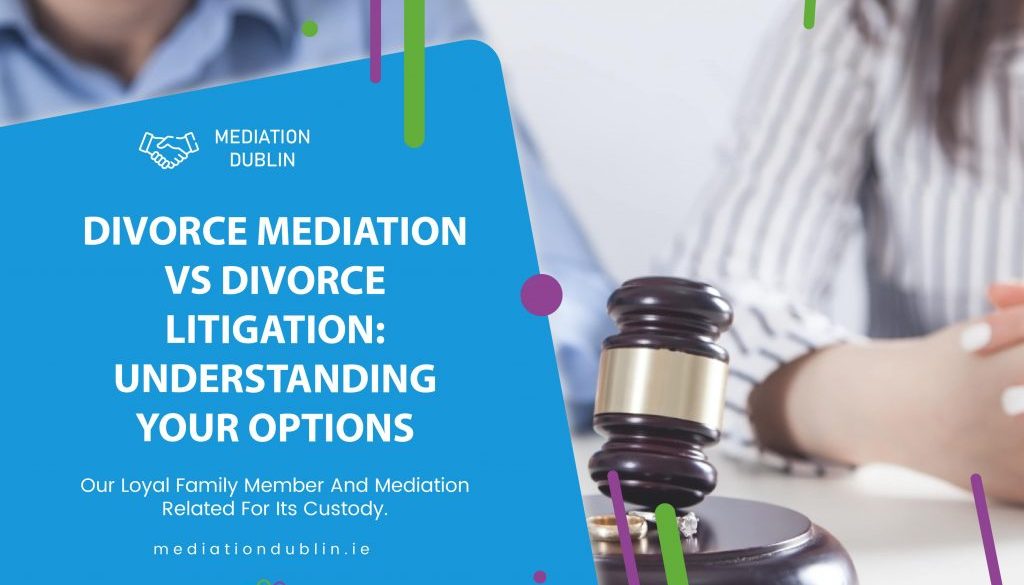Divorce Mediation Vs Divorce Litigation: Understanding Your Options

When faced with divorce, understanding the different paths available for resolution can significantly impact the experience and the outcomes for both parties involved. Two prominent methods are mediation and litigation. Here’s an exploration of both, setting out their key differences and implications.
Divorce Mediation:
Definition Of Mediation:
Divorce mediation is a process in which a neutral third-party mediator assists a couple in reaching a mutually agreeable settlement regarding their divorce.
Key Characteristics Of Divorce Mediation:
Collaborative Approach: The aim is to find mutually beneficial solutions rather than operating in an adversarial manner.
Voluntary Participation: Both parties must be willing to engage in the process.
Cost-Efficient: Generally, mediation can be more affordable than a full litigation process.
Confidential: Mediation sessions and discussions are private and not part of public records.
Controlled Outcome: Couples have significant influence over the outcome, ensuring it aligns with their unique needs and circumstances.
Divorce Litigation
Definition Of Litigation:
Divorce litigation involves using the court system and legal representation to resolve divorce disputes.
Key Characteristics Of Divorce Litigation:
Adversarial Nature: Solicitors represent each party and advocate for their interests, which can make proceedings competitive.
Formal Process: Litigation follows a structured legal process, from filing to court hearings.
Potentially High Costs: Litigation, especially for contested divorces, can be expensive due to extended legal fees.
Court Decisions: If parties can’t agree, the court makes the final decisions on disputes, leaving less control with the couple.
Key Differences Divorce Mediation VS Divorce Litigation:
Approach:
Mediation is inherently collaborative and seeks mutual agreement, whereas litigation is more adversarial.
Control over Outcome:
In mediation, parties have a direct influence over the agreement. In litigation, if a consensus isn’t reached, decisions are imposed by the court.
Duration & Cost:
Mediation often results in quicker and less expensive resolutions. Litigation can be lengthy and costly, especially if the divorce is contested.
Privacy:
Mediation remains private and confidential, while litigation opens the proceedings to members of the court.
Atmosphere:
Mediation offers a more informal, conversational setting. Litigation is formal and bound by court protocols.
Which is Right for You? Divorce Mediation Or Litigation:
The choice between mediation and litigation depends on:
- The nature of your relationship with your spouse (e.g., is it amicable or highly contentious?).
- Your willingness and ability to communicate and compromise.
- The complexity of the issues to be resolved (e.g., assets, child access/maintenance/custody).
- Your need for legal protection and advocacy.
In Conclusion
Divorce is a challenging chapter in anyone’s life. Deciding between mediation and litigation is a significant step. By understanding the nuances of both paths, you can make an informed decision that best serves your interests and circumstances.
If you’re grappling with this choice and need further insights, please reach out. Whatever route you choose, remember the importance of seeking clarity, fairness and a hopeful path forward.
